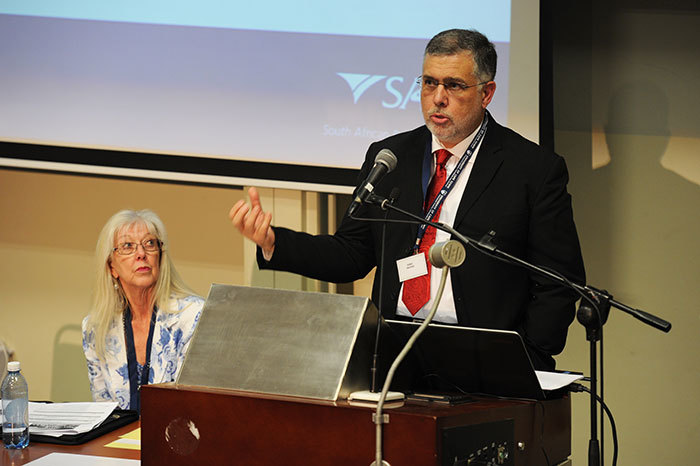Hundred-year milestone for taxpayers
24 November 2014 | Story by Newsroom
For 77 years the income of married women in South Africa was taxed together with that of their husbands, subjecting them to one of the highest rates of personal income tax.
This only changed in 1991 said Professor Peter Surtees, a speaker at a conference marking a century of income tax in South Africa.
Another speaker at this UCT-hosted event, Dr Beric Croome, referred to this when presenting his paper titled The shift to a constitutional democracy in 1994 and the impact thereof on tax law in SA. A tax specialist at a prominent law firm, Croome explained that the Constitution required that people are treated equally and therefore "a tax system that imposes tax rates dependent on gender and marital status" could no longer be tolerated.
He argued that democratisation gave taxpayers rights they had never had before. "Taxpayers must know of their rights when dealing with the South African Revenue Service (SARS) so that they can exercise them ... The government has a duty to ensure that the tax collected is spent wisely and efficiently. If [this does not happen], taxpayer compliance will be undermined."
Another example of equal rights being conferred on all South Africans is the fact that from 10 May 1994 the president's remuneration and pension became fully taxable, where up to that point this income had been exempt from tax. "I understand that this was a direct request from the late president Nelson Mandela," said Croome.
Pre-1994 taxpayers had no right to ask the revenue service for information about themselves. "Tax officials did not have to provide reasons for decisions made concerning taxpayers, but with the Constitution this had to change, and taxpayers are now entitled to understand the basis on which assessments are issued and other decisions are made."
The new dispensation saw the launch of the SARS service monitoring office, which seeks to deal with taxpayer's complaints and problems where there is alleged abuse of power. In 2005 the SARS service charter was published, which set out in very specific terms the levels of service taxpayers can expect when dealing with SARS.
Most recently the office of the Tax Ombud was created to mediate between taxpayers and SARS. "The Tax Ombud was created under law and reports directly to the minister of finance. Since coming into office in October 2013, my colleagues and I have seen good results coming out of complaints lodged at that office," concluded Croome.
Story by Abigail Calata. Photo by Michael Hammond.
 This work is licensed under a Creative Commons Attribution-NoDerivatives 4.0 International License.
This work is licensed under a Creative Commons Attribution-NoDerivatives 4.0 International License.
Please view the republishing articles page for more information.










